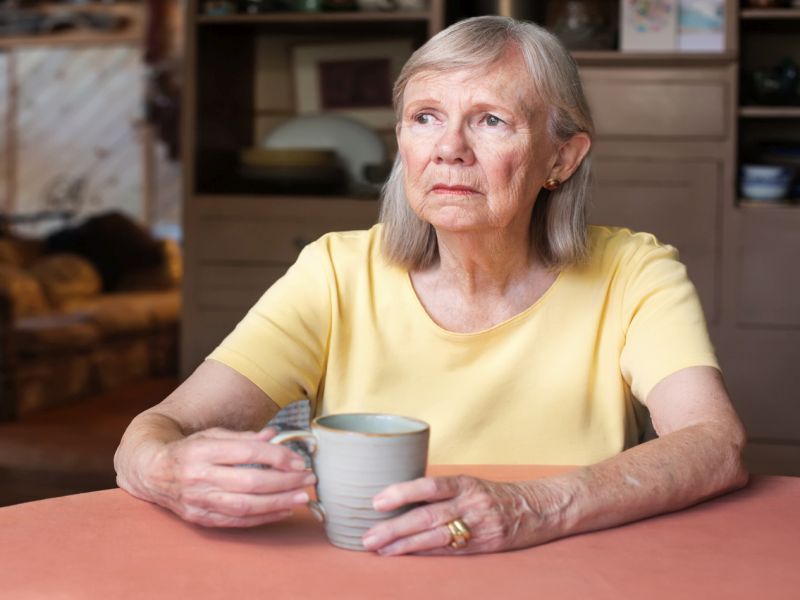
People with advanced Alzheimer’s can relearn some basic skills when they receive special training along with medication, a small study suggests.
The research, which included 20 Alzheimer’s patients, tested a program that combines specialized “memory coaching” with other services — including training and support groups for family caregivers.
Researchers found that adding the program to medication — memantine (Namenda) — improved patients’ ability to perform everyday tasks, such as dressing and bathing themselves, over six months.
While the study group was small, the results demonstrate a basic point, according to lead researcher Dr. Barry Reisberg.
“People with more-severe Alzheimer’s can still learn,” said Reisberg, a professor of psychiatry at NYU Langone Medical Center in New York City.
As Alzheimer’s progresses, Reisberg explained, people have increasing difficulty with basic care, such as dressing, bathing and using the toilet. Eventually, that worsens to the point of incontinence and total dependence on caregivers.
The new study is based on the premise that patients can be “retrained” in those basic abilities — a notion that has gotten little attention because of the progressive nature of Alzheimer’s, according to Reisberg.
“It sounds amazing, that something as basic as teaching patients how to toilet again, can be effective,” he said. “But it is.”
Reisberg presented study’s findings Sunday at the Alzheimer’s Association International Conference, in London. Results presented at medical meetings are generally considered preliminary until they are published in a peer-reviewed journal.
More than 5 million Americans are living with Alzheimer’s disease, according to the Alzheimer’s Association. Most of their caregiving falls on family members.
In fact, the association says, Americans provided over 18 billion hours of unpaid Alzheimer’s caregiving in 2016 alone.
There is a huge need for behavioral therapies and support services to ease that burden, according to geriatrics specialist Dr. Gisele Wolf-Klein.
The goal is to not only help patients, but to offer relief to exhausted caregivers, said Wolf-Klein, who directs geriatric education for Northwell Health in Great Neck, N.Y.
There are already resources out there, including support groups for caregivers, Wolf-Klein said. There are also “adult day centers” that give Alzheimer’s patients a chance to be social, and may offer services that help with symptoms.
“Those programs can help stabilize some of the behavioral symptoms — such as ‘anti-social’ behavior — that are often the most disturbing part of the disease for families,” Wolf-Klein said.
But the services at day centers or other community centers vary from place to place, according to the Alzheimer’s Association.
And few truly “cater” to patients in the more-advanced stages of Alzheimer’s, said Barbara Vogel, a social worker with Northwell Health Geriatric Medicine and Palliative Care.
What’s key about the program in the new study is that it’s targeted to the later stage of the disease, both Vogel and Wolf-Klein said.
According to Reisberg, the program is based on a theory his team calls “retrogenesis.” The idea is that people with Alzheimer’s lose their daily-care abilities in the reverse order in which they developed them as young children.
The researchers believe that patients can, however, relearn those skills — if their training matches the developmental age at which they acquired them in the first place.
They tested that idea by randomly assigning 20 families either to go through the program, or stick with standard care. Patients in both groups were taking memantine, and families in the standard-care group were given referrals to community services — including day centers, support groups and physical and occupational therapy.
Caregivers in the program first had a general training session, Reisberg said. Then therapists made home visits, to give patients memory coaching in the skills they’d lost.
When patients were assessed after 28 weeks, those in the program scored higher on a standard measure of basic skills. Compared with the study’s start, they’d improved by 6 points on average, versus 3 points in the standard-care group.
To put that in a bigger context, Reisberg pointed to a 2003 trial that tested memantine alone (a trial he led).
Compared with the modest benefits seen there, patients in this study scored 7.5 times higher when they received the specialized training along with memantine.
“Taking medication is important, but obviously we need to do more,” Reisberg said. “The effects of medication are relatively small. The effects of adding this [training] can be large.”
Larger, longer-term research is needed, Wolf-Klein said. And according to Reisberg, the results of a one-year extension study will be coming soon.
For now, Wolf-Klein suggested that families look for resources already available in their community — by asking their doctor, the local Alzheimer’s Association chapter, or nearby senior centers.
Medicare may cover some services such as occupational or physical therapy. And while day programs are not covered, Vogel said many offer “sliding scale” rates that can help families afford it.
More information
The Alzheimer’s Association offers resources for caregivers.
Source: HealthDay

Leave a Reply